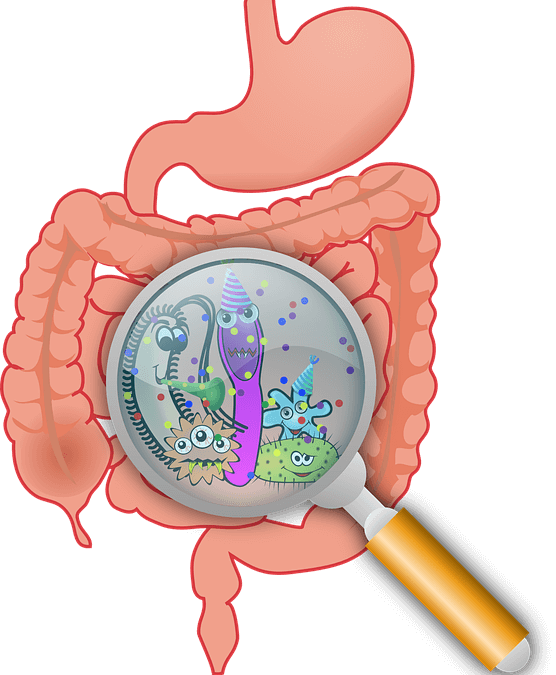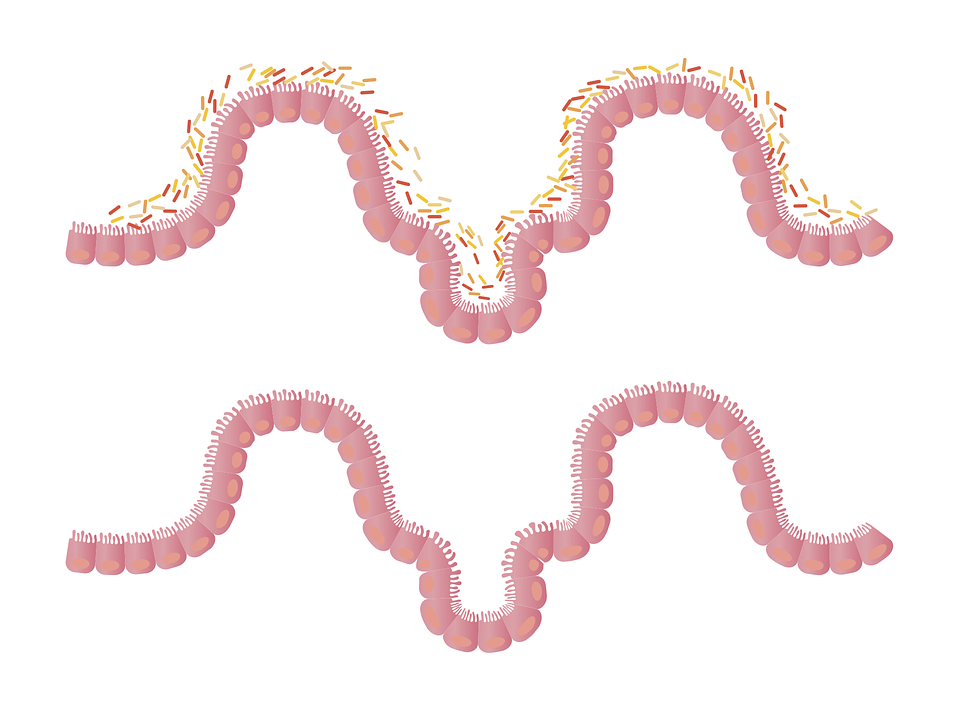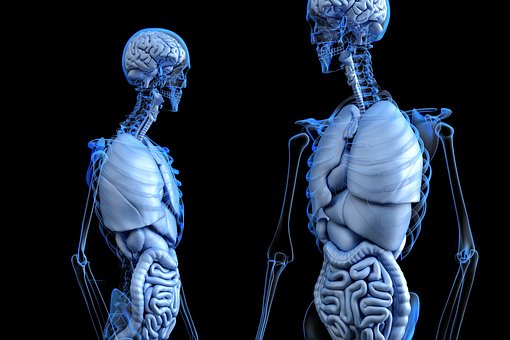“Unhealthy gut can worsen breast cancer, promoting spread of disease to other body parts.”
That breast cancer headline is designed to get you to click. Rile you up. Freak you out.
Did it?
The article behind that headline speaks to an intriguing and well-done study; on mice, tumor models and cell lines. (1, 2, 3)
Not humans.
While the findings encourage more research on gut health and breast cancer, critical details of the study weren’t featured predominantly in the piece.
Findings to know:
- The research was done on mouse models of hormone receptor positive breast cancer (the most common type.)
- The mice were treated with a CHRONIC dose of antibiotics to disrupt the gut microbiome.
- The result was systemic and mammary tissue inflammation.
- In an inflammed environment, tumor cells were more able to move from tissue into blood and lungs; a major site for hormone receptor-positive breast cancer to metastasize.
- The findings seem likely to be applicable only to HR+ breast cancer.
- The study reminds us that antibiotics aren’t dangerous and doesn’t suggest avoiding them.
According to study authors, lifestyle behaviors that support overall health – a healthy diet high in fiber, exercise and sleep – also promote a healthy microbiome, which in turn is associated with a favorable outcome for breast cancer in the long term. (2)
Although a deep dive of the research is beyond the scope of this post (but you can learn more about it here), I offer an introduction to the connection between gut health and breast cancer. It’s a fascinating and mind-blowing area of research.
![]()
MICROBIOME AND MICROBIOTA DEFINED
While microbiome and microbiota are often used interchangeably, they’re two different things.
Microbiota: The diverse population of microorganisms, mainly bacteria, that occupy the intestinal tract (mostly the large intestine.) Fungi, microbes and viruses are also inhabitants.
Within the gut microbiota, there are 1000’s of different bacterial species. The microbiota helps in producing vitamins, metabolizing dietary compounds, and protects against pathogens. Gut microbial “balance” is key to these important functions being successfully carried out. The slightest imbalance in this equilibrium can trigger a condition called “dysbiosis” (impaired microbiota).
Microbiome: The entire genome (genetic material of an organism) of the host’s gut microbiota (by the way, YOU’RE the host.) (6)
MAMMARY MICROBIOTA
Turns out, your breasts have their own microbiota.
The human breast contains a diverse and unique community of bacteria, different from bacteria found at other body sites. This diversity holds regardless of the location sampled within the breast.
What’s the role of the mammary microbiome in switching on or off the risk of breast cancer development? Currently, the reigning hypothesis is that compositional changes of breast microbiota may also contribute to disease development and progression via several pathways.
Whether the host’s microbial differences are a consequence or cause of breast cancer is unclear, and an area of great interest for further study.
Some research suggests there are distinct bacterial differences between healthy breast tissue versus malignant breast tissue. Interestingly, some studies show a higher abundance of Escherichia coli in women with cancer compared with healthy control subjects. E. coli is known for its cancer-promoting activity. (7)

CAN THE GUT MICROBIOME IMPACT BREAST CANCER TREATMENT EFFECTIVENESS?
Researchers are investigating the impact of quality and diversity of human gut bacteria in determining whether people successfully respond to cancer treatment.
In some studies, scientists discovered bacteria missing from the microbiome; bacteria that are critical to support a healthy immune system’s ability to respond to drugs. (8)
THE MICROBIOTA AND BREAST CANCER CONNECTION
The association between the microbiota and breast cancer is complex, and the mechanisms underlying many clinical observations are not completely understood.
However, given the interest in this area of research, the fact that between 2008 and 2012 the global incidence of breast cancer increased by 20%, and that as much as 70% of breast cancer origins remain unknown, scientists are working to understand how sporadic breast cancers arise.
Not only is the microbiota composition important, so is its functionality.
There are several possible mechanisms proposed as a way to understand the microbial influence.
- Regulation of chronic inflammation and immunity.
- May promote malignancy by promoting chronic inflammation, altering the balance of host cell proliferation and death, by triggering uncontrolled immune responses.
- Genomic stability and DNA damage.
- DNA damage in itself may not be sufficient to promote development of cancer. Double-strand breaks are the most detrimental type of DNA damage. Scientists are examining the ability of certain types of bacteria to cause this detrimental type of genomic instability.
- Metabolic function.
- Pathways of hormone, cysteine and methionine metabolism (among others) have been investigated in breast cancer patients. Some microbes block and/or disrupt the activity of estrogens and endocrine disrupting chemicals, which in turn may trigger alterations in the gut microbiota, contributing to inflammation and/or biologically active hormones. (6)
HOW TO FEED YOUR GUT
Given the above, you may be asking yourself questions like this!
- What can I do to positively influence and “shore up” beneficial anti-cancer bacteria?
- Is it possible to “re-engineer” the gut microbiota to support overall good health and reduce breast cancer risk?
A future of precision nutrition and individualized patient care through dietary modification is on the horizon.
Until then, here are the main points to know: (9)
- Dietary choices can impact health through alteration of the gastrointestinal ecosystem
- Saturated fat may contribute to insulin sensitivity and inflammation
- Artificial sweeteners may trigger dysbiosis leading to reduction in beneficial bacteria
- Western diet reduces beneficial bacteria
- Positively impacts (increases) beneficial gut microbiota:
- High fiber foods
- Fermented foods
- Foods rich in polyphenols (catechins, flavonols, flavones, anthocyanins, proanthocyanidins, phenolic acids)
- Plant-based diet
- Mediterranean diet
WHAT TO EAT?
While this is by no means an exhaustive list (here’s more info on that), it’s a good starting point! How many of these foods can you add to your diet?
- Barley
- Beans (dried)
- Cocoa
- Fermented foods (tempeh, kefir, yogur)
- Fruit
- High fiber foods (berries, broccoli, beans)
- Legumes
- Nuts
- Olive oil
- Raw oats
- Tea
- Tempeh
- Unrefined wheat
- Vegetables
- Whole grains
- Whole soy foods
______________________________________________________________________________________________________________________________
SOURCES
- Horrible Headline
- Unhealthy Gut Promotes Spread of Breast Cancer, Study Finds
- Pre-existing commensal dysbiosis is a host-intrinsic regulator of tissue inflammation and tumor cell dissemination in hormone receptor-positive breast cancer
- Disrupted Gut Microbiome Promotes Breast Cancer Spread In Mice
- Gut Microbiota and Cancer: From Pathogenesis to Therapy
- Breast Cancer and Its Relationship with the Microbiota
- Resident Bacteria in Breast Cancer Tissue: Pathogenic Agents or Harmless Commensals?
- How the Microbiome Could Be the Key to New Cancer Treatments
- Influence of diet on the gut microbiome and implications for human health
To learn more about using nutrition, exercise and wellness to support and reclaim your health, join her in the HIGHER GROUND BREAST CANCER SURVIVAL membership.
Cathy works 1:1 with private clients to create customized strategies that address diet and lifestyle challenges unique to the breast cancer survivors. Click here to learn more.
Click here to get her FREE Lifestyle Choices Matter! Get Started Guide.





